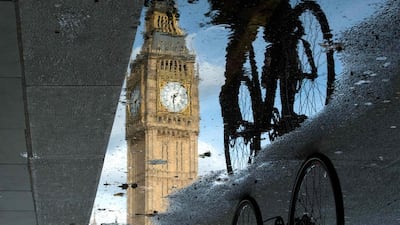In 1973, when Britain joined the European Community, as it was then, it was the “Sick Man of Europe” and the City of London, once the financial centre of the world, was a down-at-heel village with one – just one – high-rise building, the NatWest tower. The food was bad, the office accommodation Dickensian, the public transport system stretched and the stock exchange only allowed in locals dealing primarily in domestic stocks. It had long been overtaken as a financial centre by New York, Tokyo, Frankfurt and Paris, and other cities were rapidly catching it.
But now, after 43 years in the European Union, London is the unchallenged No 1 commercial, financial, business and (arguably) cultural centre, not just in Europe, but in the world again. Last week, The New York Times listed the features that international businesses look for in a city: English-speaking; favourable regulatory environment; strong transport links and communications infrastructure; prime office space; luxury housing; good schools, restaurants and cultural offerings. And finally it should have an "intangible" energy about it.
London, today, contains more of these, including the “intangible” bit, than any other city in the world. In the past four decades it has attracted Middle Eastern, Russian, Far Eastern and American investors in droves who have changed the face and structure of the capital almost beyond recognition. Now it is Paris that is run down, Frankfurt that is deadly dull, Tokyo marooned – and every bank in the world has a major office in London. Armies of international bankers, brokers, traders, fund managers, hedgies and dealers of all hues and backgrounds inhabit some of the modern office space in the City, Canary Wharf and even Mayfair, the European capital of the private equity business. About 40 per cent of the world’s biggest companies have chosen London as their European base and 60 per cent of the biggest companies from outside Europe have located their continental headquarters in the capital. The nearest rival is Paris, with 8 per cent.
London restaurants are now arguably better than their Parisian counterparts (they are certainly more expensive), and theatre, opera, ballet and the arts compare to anywhere. The capital, with 12.5 per cent of the UK population, generates 22 per cent of its GDP and in the last quarter of 2015 accounted for 40 per cent, or £3.4 billion (Dh16.57bn), of British goods exported to the EU. It’s a rich, busy, cosmopolitan and multi-ethnic city like no other in Europe.
The big question now is: can it hang on to its pole position? In the run-up to the referendum vote, no voices were more vociferously pro-Remain than the big banks and financial institutions that feared the would lose their ability to “passport” their services across the continent, putting them at a major disadvantage to other capitals. Before the referendum, HSBC, which has 47,000 workers in the UK, said it could look to shift 1,000 jobs to Paris in the event of a Brexit. Banks including Nomura, Barclays and Deutsche Bank had already announced they were considering moving jobs out of London, Morgan Stanley warned that 1,000 of its London jobs could be moved, and JP Morgan said it could shift 4,000 of its 16,000 staff out of the UK.
The Brexit vote, therefore, came as “an exogenous shock”, in the words of John McFarlane, the chairman of Barclays, to the City delivering a couple of the worst trading days in the exchange’s history and sending the pound to a 30-year low. Barclays’ own shares have fallen by more than 20 per cent since the vote and others are down even more. There was much wailing and grinding of teeth as London seemed to be consigned again to the sidelines.
Yet a week later the markets have rallied, and so too have the spirits of the financial services industry. The City has survived two world wars, countless financial crashes, Labour governments and attempts to undermine it by jealous European leaders and Brussels officials – and it will survive Brexit, even if it has to tighten its belt and make some adjustments. Its huge strengths and leading market positions are not going to disappear overnight. The European capital markets are, as Mr McFarlane argued, “not in France, Paris or Dublin; they are in London”. To everyone’s relief, Douglas Flint, the chairman of HSBC, confirmed that Britain’s biggest bank would be staying and that it had taken the risks from a Brexit vote into account when it made its decision not to move its headquarters in February.
London’s dominance could still be dented by years of uncertainty and political upheaval following the vote. But as Mr McFarlane said at the end of the week, it is “a time for leadership and for cool heads to prevail”. London is not going away.
Ivan Fallon is a former business editor of The Sunday Times and the author of Black Horse Ride: The Inside Story of Lloyds and the Financial Crisis.
business@thenational.ae
Follow The National's Business section on Twitter

